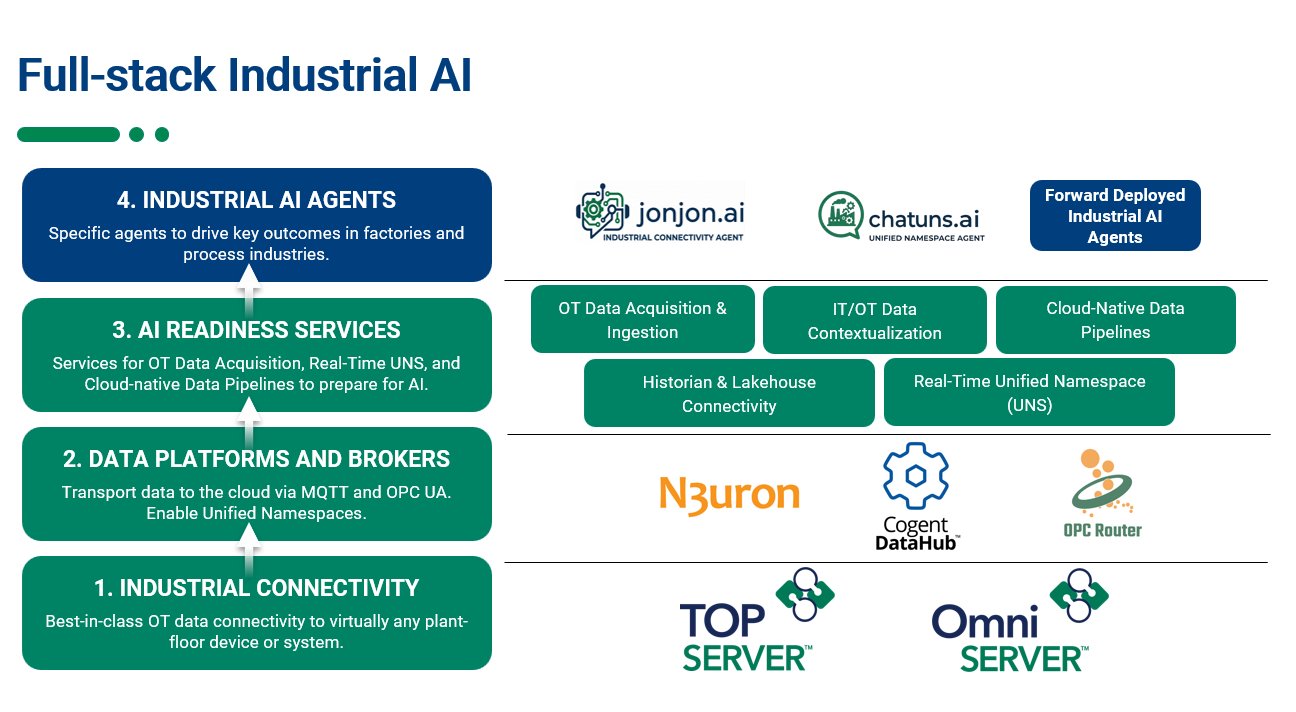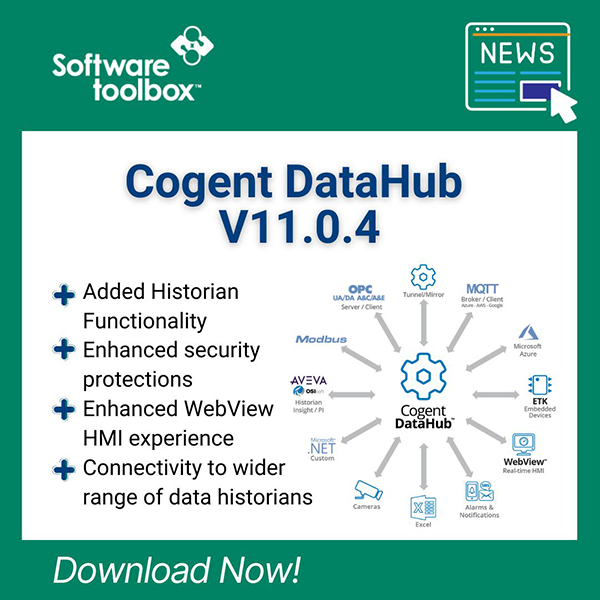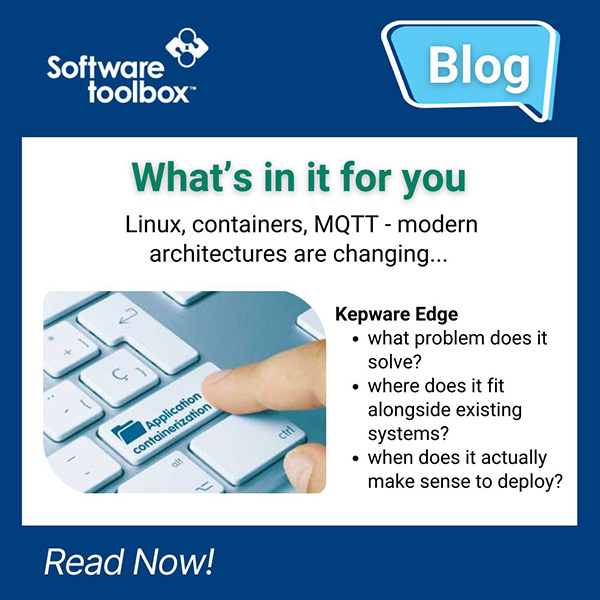Shared Challenges, Shared Progress
In an industry defined by precision, tight timelines, and rapid innovation, collaboration isn’t optional — it’s essential. That may seem counterintuitive, especially when many of the companies we meet at conferences we may compete with on certain products or solutions but complement each other's solutions in other use cases". When we come together as 'Co-opetitors' to solve real problems and deliver value, cooperation becomes a strength.
In this blog I am going to talk about two examples of such events. The first is a global gathering of some of the best System Integrators in the business, the CSIA 2025, and the second is the deeply technical workshop OPC Interop hosted by the OPC Foundation to foster suppliers delivering compliant and more importantly, truly interoperable solutions.
Today's challenges - from scalable architectures and OT/IT convergence to secure interoperability and vendor-agnostic integration - require shared effort and open dialogue across the industry. We all bring different tools, expertise, and business models to the table, but our common goal is clear: enabling reliable, efficient, future-ready operations for industrial end users.
That’s why technical collaboration and industry / association events matter. They’re not about sales pitches - they’re about sharing ideas, validating solutions, and building better systems, while of course recognizing there are practical limitations driven by laws intended to prevent companies from engaging in anti-competitive activities that hurt the overall market and consumer. The events remind us that behind every logo is a smart, passionate team working toward the same mission: doing great work, together.
CSIA 2025
As long-time sponsors of the Control System Integrators Association (CSIA) Conference, our team – and I as a first-time attendee - personally experienced the value of direct interaction with system integrators and technology providers. CSIA serves as a meeting space for experts from across the automation world: from project managers and technical leads to solution architects and vendors.
This year’s – and very recent - CSIA event featured insightful sessions on best practices, digital transformation strategies, and use cases for the use of artificial intelligence. But some of the most memorable insights came from conversations outside the scheduled program - in the expo area, during meals and networking sessions, where ideas could be explored in greater depth. Here are some examples of things our team highlighted during our event debriefing session.
One keynote speaker, who turned out to be our team’s favorite, mentioned that he would hear people talking about the factory of their future. But his point was "what about the factory of the present?" So many factories are still catching up to apply today's technology. How about shifting to talk about the proof of value versus proof of concept? Even though they are interrelated, there is often a misconception that it’s all about the technology. If the value to be derived from solving that technical problem is not clear, those that are supposed to solve it have to be careful about size and cost. Which leads to a discussion about asking the right questions…
At Software Toolbox, we make it a habit of asking a lot of questions and here is why: Because we care about the bigger picture. We care about the value delivered by solutions for user and SI businesses. We only want to sell products if they are actually going to solve the technical problem and generate value.
For example, our Sales Director Win, who started his career in technical support, and evolved into technical product management, had a conversation with a System Integrator who needed support with data integration. “I've got everything else in this project working, but I need to get data to an XML file for my OEE application to consume. The vendor said it supports OPC but it doesn't.” This serves as an example for the importance of making data integration a priority early on to avoid technical debt. Asking a lot of questions helps to avoid that. Whenever you are integrating various platforms, plan ahead, do not take communication for granted until it may be too late.
What I also kept hearing from attendees was that the CSIA event is THE event in the industry to provide the most value due to the networking opportunities. And literally one item on the agenda focused on just that: The Speed Networking Round Tables. Pretty much like speed dating, one gets to ask basic questions, find out who everyone is, what they do and figure out if the conversation should be continued. No judgement. Another networking forum are the Peer Groups, a great manifestation of the collaborative spirit of the CSIA community. “Taking it from the macro level of what we do at the conference to support the CSIA educational mission, to a micro level of non competing System Integrators seeking to improve their businesses through sharing ideas” as our President and Founder John put it. Did you know that John started his career in technical support as well?
One key takeaway for my fellow first-time attendee Jessica - a Senior Technical Applications Consultant at Software Toolbox (are you noticing a theme here?) - was the willingness of leaders to openly share not just successes, but lessons learned from missteps. “The vulnerability and the transparency that provided was refreshing,” she noted. We both felt that throughout the event - from the breakout tracks to the Expo, lunches, and social gatherings - everyone was genuinely welcoming. I never felt like I had to prove I deserved to be there or that I knew enough. People were interested in my story, my experiences, and vice versa.”
Events like the CSIA Conference reinforce the importance of keeping communication channels open between integrators and the software providers. It allows for faster feedback loops, better understanding of system constraints, and more practical support when configuring and deploying automation software in the field.

Industry Trends Shared at CSIA 2025
- The varying definitions of Digital Transformation and challenges in insuring value delivery
- The growing involvement of IT in the OT space because of cybersecurity and other needs. there is a lot more meshing of those two groups and we do need both of them at the table.
- The low hanging fruit of digital transformation have not changed but intensified
- Energy management
- Maintenance
- Keep the line running
- Continuous operating efficiency
- The ever growing need for data integration: Going from opinion based to data driven
If these are things you deeply care about too, let us talk about that!
From Guesswork to Clarity: Why Real-Time Data Integration Matters
Modern operations can no longer afford to rely on guesswork - real-time data integration is crucial for making confident, informed data driven decisions. Below are several real-world examples demonstrating how organizations have collaborated with system integrators and engineering companies to successfully achieve this digital transformation.
From Downtime to Data-Driven: How solutions from Software Toolbox Saved $21M in a PLC Upgrade - A large food processing mill avoided over 30 days of downtime—and saved more than $21 million in lost production—by running old and new control systems in parallel during a major upgrade. Learn more about this downtime reduction solution.
Zero Downtime, Zero IT Requests: Compliance Reporting That Just Works - A pharmaceutical utilities team needed a reliable, secure way to access historical water and wastewater data without relying on engineering support. The results speak volumes: over 50 hours of engineering time saved per year—more than 250 hours across five years—complete elimination of macro failures, consistent on-time compliance reports, and full autonomy for utilities staff. Learn more About This Compliance Reporting Success.
Secure, Real-Time Data Sharing Drives Faster Quality Insights - Swiss integration firm Logicpark faced a demanding challenge at a Kimberly-Clark production facility: seamlessly linking an ABB quality control system to a new process vision system, each with its own OPC server, across a secure, firewall-separated network. Learn more about this real-time data sharing success.
Driving Operational Excellence Through Seamless SAP and PLC Connectivity - A global beverage manufacturer faced challenges with inefficient and outdated methods for integrating real-time data from Rockwell Automation PLCs into their SAP system, limiting operational efficiency and scalability. Learn more about this SAP to PLC Integration Success.
Here is another interesting read: Partnerships key to digital transformation CSIA panel continues discussion of the digital journey. The ultimate goal of digital transformation - move clients from opinion-based to data-driven cultures.
OPC Interoperability Workshop: Testing for the Real World
Recently, members of our technical team also attended the OPC Foundation Interoperability Workshop - an intensive, hands-on testing event where engineers and developers from different vendors work side-by-side to validate the interoperability of OPC UA servers and clients. This workshop puts code and compatibility front and center. Over several days, our consultants put themselves into our customers’ shoes and test our products with products they are not necessarily familiar with across a wide range of implementations, configurations, and edge cases, often identifying and resolving issues in real time. The goals are to find those “one offs” that could happen that are not your usual support cases and to enhance every attending vendor's implementation of OPC UA, making it more robust and in line with the specification, but more importantly, interoperable in the real-world.
The results of interop testing are fed back by suppliers into product roadmaps, bug fix cycles, and conformance testing plans - and everyone leaves with more resilient software, the team's expertise improves and gets shared with the rest of our technical tame, which helps solve customer problems faster and better, and hopefully also prevent some by fixing problems before users find them.
Interoperability isn't just a checkbox.
It is an active, ongoing process. "Even fully certified products can behave unexpectedly when integrated with others, and this workshop highlighted the importance of rigorous, collaborative testing.” The team came back to the office with improved confidence in our own OPC UA implementations, having seen how it interacts with a wide range of client and server systems in a real-time environment.

The Common Thread
Similar to our team’s experience at the CSIA conference, what surprised us most was how collaborative and supportive the OPC Interop environment was. “Even though we’re technically competitors, the shared goal of making OPC UA implementations more robust brought everyone together. The openness of the conversations, the willingness to dig into tough issues, and the shared troubleshooting really underscored the community aspect of OPC development,” said Kyle, Technical Applications Consultant at Software Toolbox.
And speaking of events that are different: check out the demo our team delivered at Prove It! If you have made it all the way down here, subscribe to our blog and follow us on LinkedIn to stay up to date on our solutions evolution and to see what we plan to show at ProveIt! 2026 because we are already signed up as a Silver Sponsor on February 16-20, 2026 in Dallas, TX.






